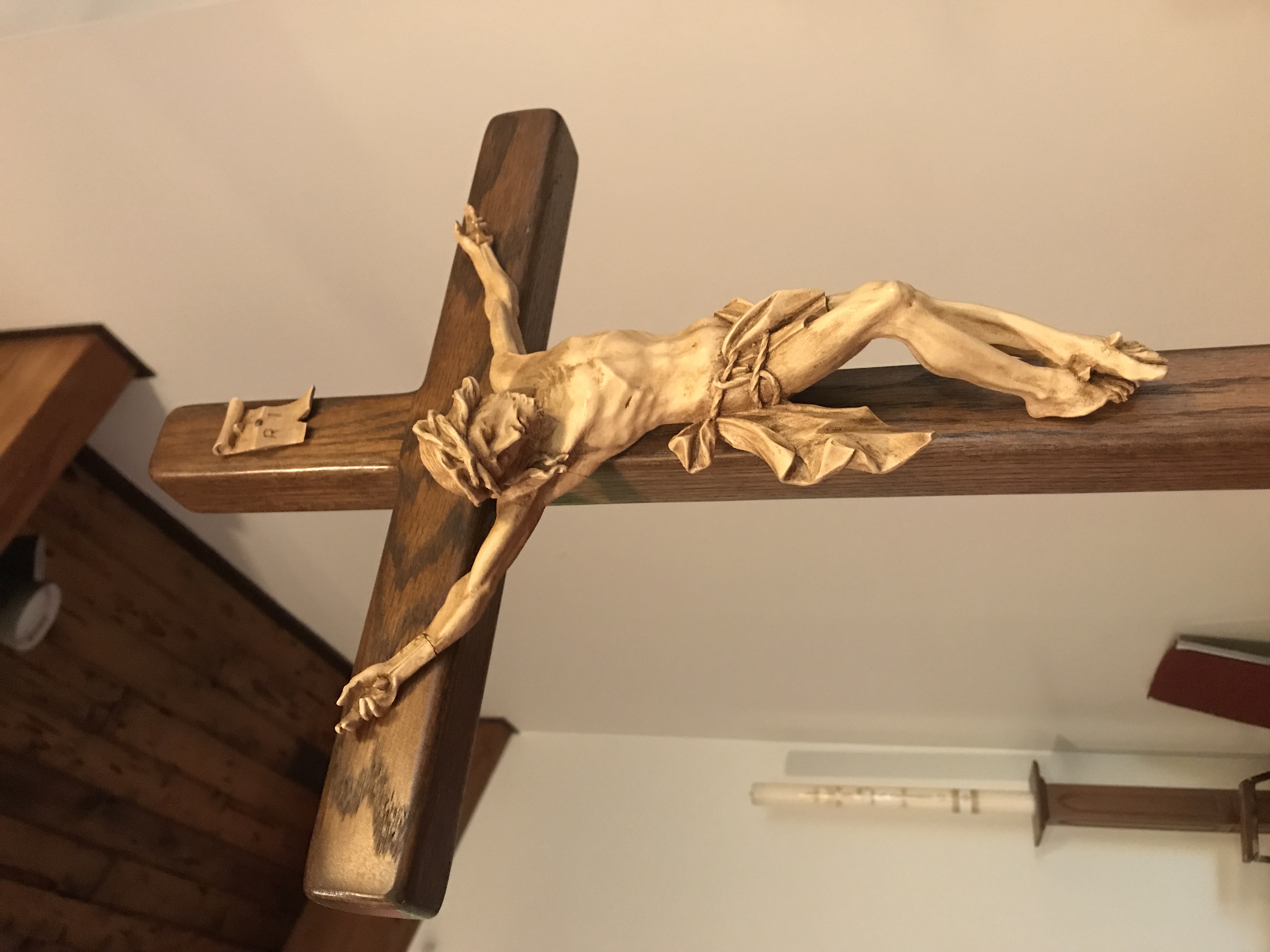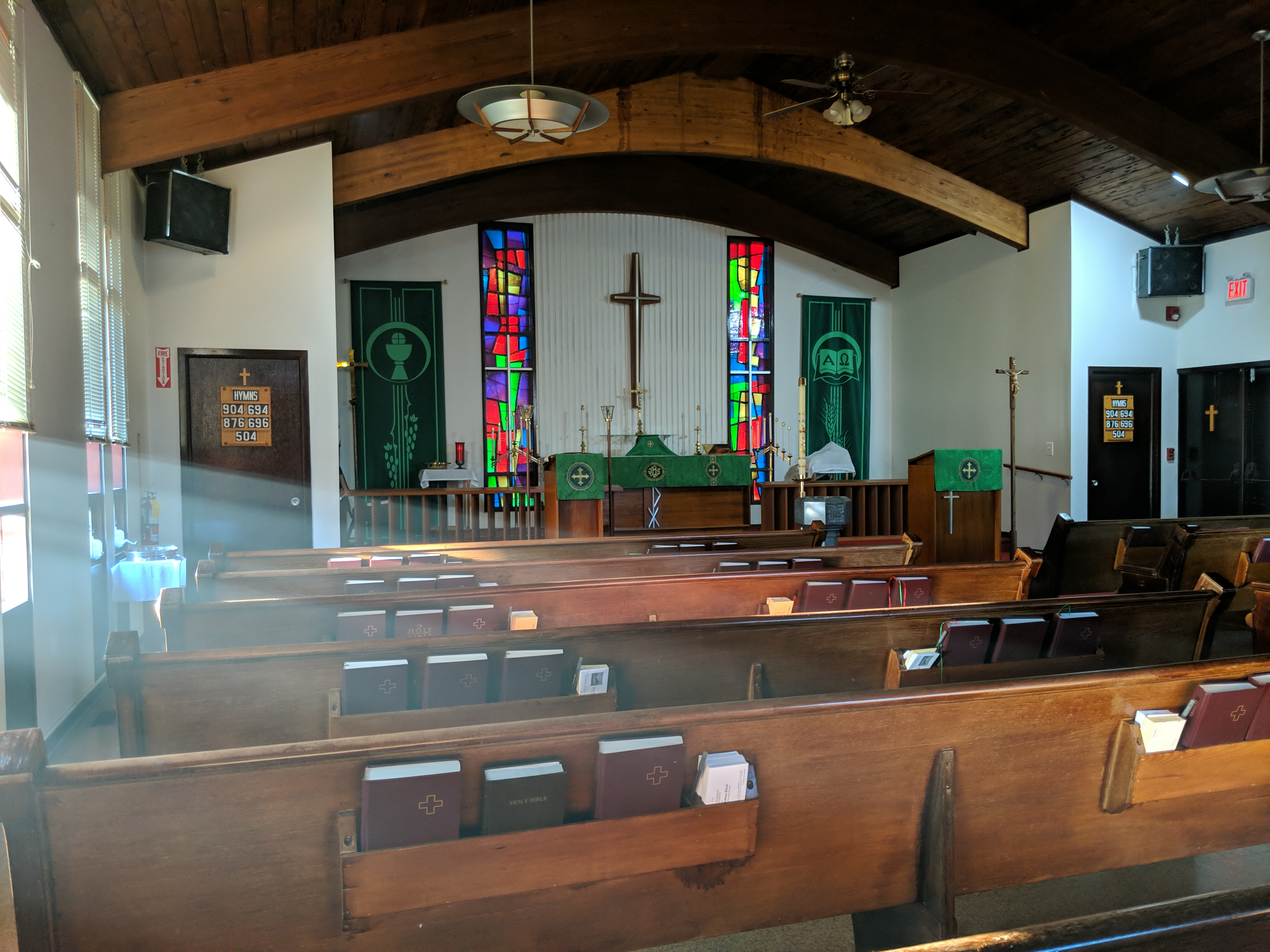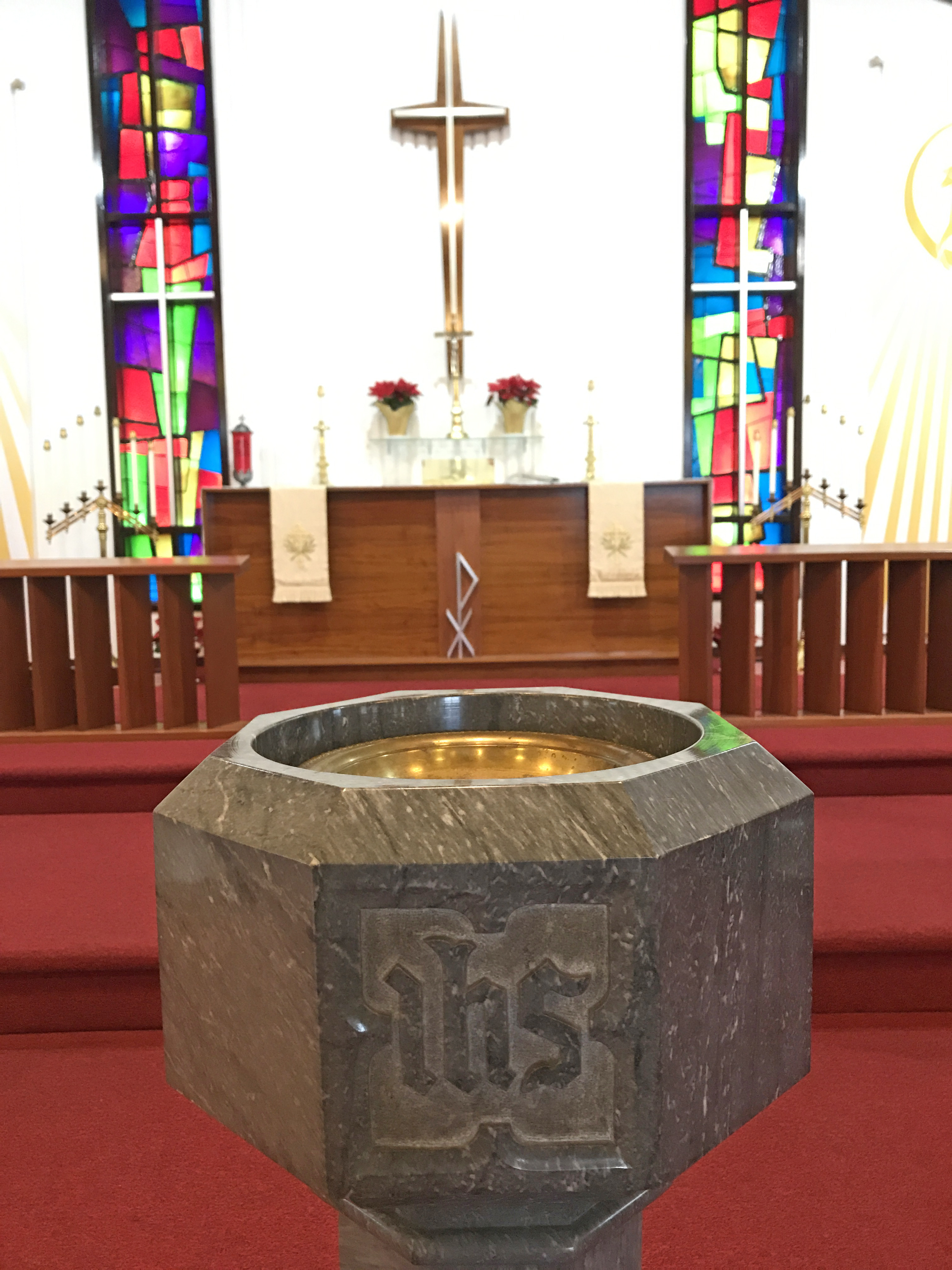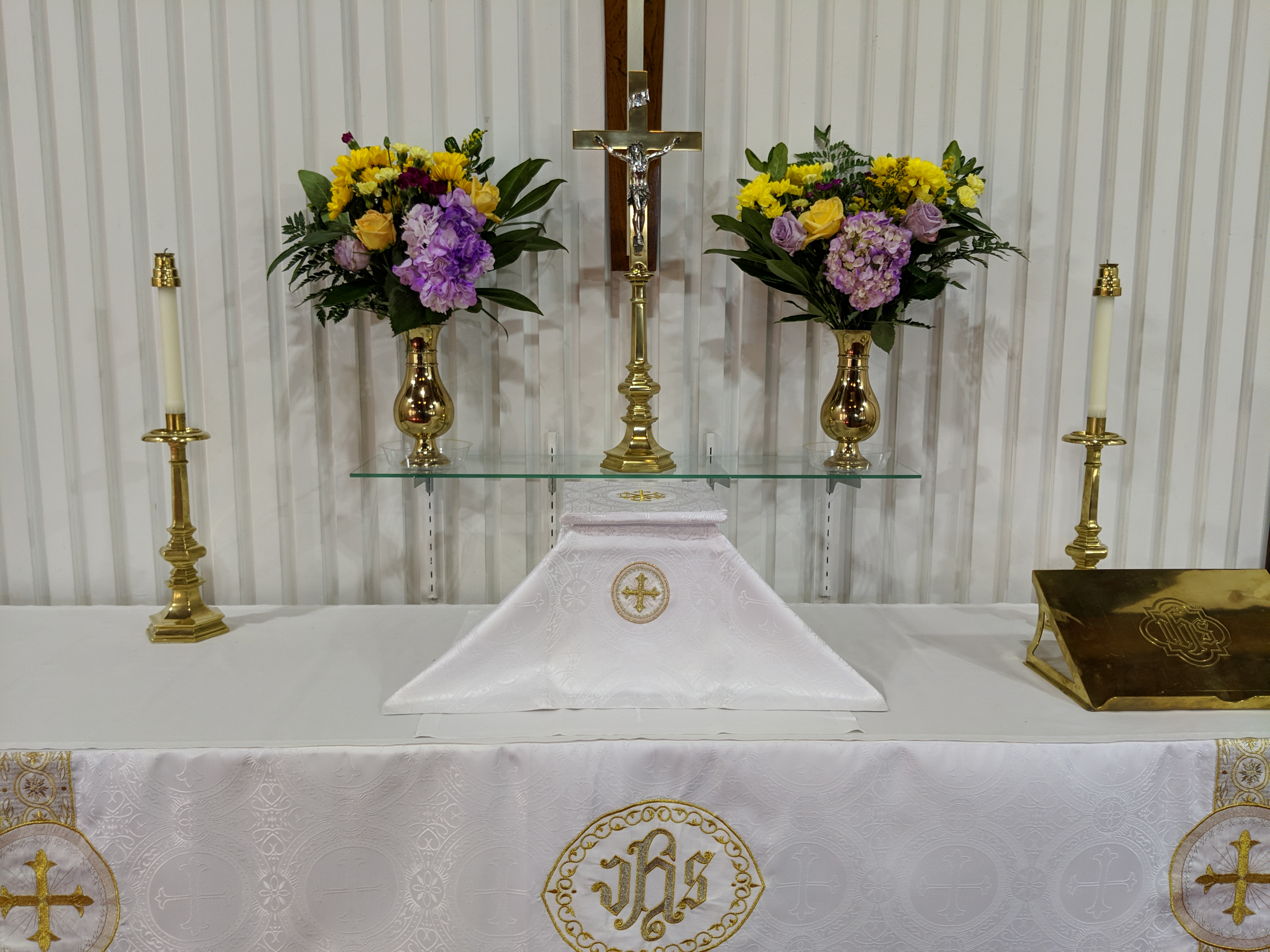The Thirteenth Sunday after Trinity – Sunday 27 August A✠D 2023
✠ Psalmody: Psalm 74:20a, 21a, 22a, 23a;88:1
✠ Lection: Leviticus 19:9-18;Galatians 3:16–22;St. Luke 10:23–37
In the Name of the Father and of the ✠ Son and of the Holy Spirit. Amen.
Consider Moses, Isaiah, Ezekiel, Daniel, Elijah, and Elisha; big names, maybe lofty names in your minds, renowned prophets of old that received word from the LORD and faithfully delivered it to the people often causing the prophets honorable suffering of harm, ridicule, and persecution. Consider David, Solomon, Hezekiah, and Josiah: more great and lofty names; magnificent kings among the other wretches of the Old Testament, as these are well known for the Christian lives of repentance and forgiveness that they lived; revered because of what they faced in their respective reigns and yet sought to serve God faithfully.
The Word of the Lord, Who had come to many of these prophets and kings directly, took on the same flesh of which He made His most beloved part of the created heavens and earth. The Joy of heaven Who tabernacled among us, turned to His chosen disciples in today’s passage in St. Luke and said privately, “Blessed are the eyes that see what you see! For I tell you that many prophets and kings desired to see what you see, and did not see it, and to hear what you hear, and did not hear it.” Just as we are able to look at one another here this morning, these blessed apostles were able to see the fulfillment of God’s promise being carried out in the flesh of Jesus, the Man standing and talking just an arm’s length away. What grand visions those must have been for the prophets and kings to have the Word of the Lord come to them, yet such revelations were markers of the proper, more glorious advent of the Incarnation, because it wasn’t by a vision, but by this blameless Man’s death on the cross that we would be reconciled to God. We experience similar in-person fulfillment moments when all the pictures of the Grand Canyon, Niagara Falls, or the Statue of Liberty become paltry when our eyes finally take in themselves these great wonders. These great creations are nothing next to the Creator bringing forth His kingdom in our flesh. The day-after-day blessings the disciples experienced were unrivaled by all the riches and glory of King Solomon in his prime and any other splendid moments of the past prophets and kings.
We mustn’t consider the prophets and kings as lacking though. They were not left deprived or unsatisfied because, in their day, they saw the coming Messiah with their spiritual eyes. They reaped rewards in their present time for what the Christ would come to do in their future. The disciples experienced a blessed time, an acceptable year, a special season of grace in that they were able to see the work of the Lord both with their spiritual and with their natural eyes. Jesus desired that they realized, valued, and absorbed that time period from the front-row seats into which He saw it fit to place them. The benefits of their blessings have washed down to us over time in the Apostolic teachings.
In their spiritual eyes, imagine how they would see us now in the Church Age. Our blessedness isn’t dependent upon how good we have it in our day, how evil our generation is, or how malignant the depravity is of the culture. We, though not having seen with our natural eyes, know Jesus Christ, true God and true man, died upon a cross for the whole world in order to save it from eternal death. We know that He has ascended. We know that He has sent His Spirit. And we know He will come again with glory. These are blessings no past, present, or future evil can rob from us no matter how much they accuse, hiss, persecute, or twist the Truth. Today is the day of salvation because Jesus finished our reconciliation in His death. In the Lord, no matter where His saints are in time, we lack nothing. The prophets lacked nothing. The kings lacked nothing. The disciples lacked nothing. We lack nothing. Be bold and confident in this remarkable truth.
This healthy perspective on time can help us in how we face our new days, both as individual saints and as a congregation of them. If we believe what we proclaim, that each and every Sunday can stand on its own as another Easter where the risen Lord comes to us; that we come to be served by Him in His Divine Service; that we are absolved of our sins; that we receive His Holy Word; that we eat and drink of the Lord Himself, then we cannot allow the uncertainty of any future day to overshadow the reality of each one into which God enters us. There is too much that He has in store for us in our present time. There is too much that you possess to worry or fret over that which you may not. If we value each Sunday the way we confess we do, we act based on that and trust God to bring forth fruit when and where it pleases Him. Our own worries, earthly wisdom, or desires can blind us to the commandments we’ve been given and the blessed opportunities He has for us right here and now to fulfill them.
The lawyer who tested Jesus in the gospel not only possessed what the Holy Spirit-inspired prophets and kings of old left in holy writings, but he had studied it to the degree of knowing it almost too well. He summarizes the Law perfectly just as we are aware that it may be divided into two tables: love God and love neighbor. But the Lord did not give these commandments of love as a means by which we are to try to justify ourselves in finagling them so as to trick ourselves and others into believing that we are keeping them. He did not give them to us so that our pursuit through them may result in inheriting eternal life. They show the opposite.
The Lord sees fit to make our neighbors who He pleases them to be, thus giving us opportunities in the present to follow His lead; not so that we may wiggle and squirm out of service to our neighbor while still appearing worthy of life, but simply so that neighbor may be served through you by the one, true and gracious God.
What good is there in doing good works? What do they gain? The first two travelers passing by on the road between Jerusalem and Jericho were godly folks. They served the Lord even professionally. The priest was a man serving in the role of offering up pleasing sacrifices to God on behalf of the people for their reception of God’s mercy. And the Levites were the workers who took care of all the other ins and outs of the Temple functions. Their jobs were God and neighbor, and the Lord set forth the opportunity that very day and time, yet they set their eyes further down the road, passing by on the other side, going on by the one nearing death.
The Samaritan, likely despised by any good Jew, half dead or not, turns out to be the one to love his neighbor. He sacrificed His time. He sacrificed His money. He sacrificed personal security because a Samaritan journeying near Jerusalem with a half-dead Jew on his own animal could’ve landed blame and punishment on Him. So, yes, we are to go be good Samaritans. That is loving our neighbor. But, leaving it at that, merely telling the story of this Samaritan and his good deeds, saves no one. Jesus doesn’t tell this story so that you go out and be good, because you, doing the work of a good Samaritan saves no one, yourself included. Strip-mining the Bible for moral lessons reduces it to a temporal instruction manual that is worth no more than a stop sign or an on-time credit card payment.
Go be a good Samaritan only becomes a worthwhile intent when it is preceded by spiritually seeing what you’ve been given to see: the On Who the true Good Samaritan is. Even the Law of the Old Testament all points to Him as the way to inherit eternal life. Jesus is the One Who perfectly loved God and neighbor, setting an example for us, but even better, dying for us to pay for all the times we don’t follow His example. He has humbly stooped down low out of heaven, placed us upon Himself, and carried us into His kingdom, paying for all needs of body and soul. Left to ourselves on the side of the road, eternal death is our only destination. This message, that Christ is our Good Samaritan Who paid His life as a ransom for ours, is the better and intended message of the parable. It is the good news that saves. It is the good news that we hear and receive in here every single Sunday, a place fit for prophets and kings for Our Savior reigns upon His altar. It’s the good news that the world needs to hear every Sunday, no matter where God’s people gather around His gifts. Wherever we gather in His name, there Jesus is among us. Here is the hospital. Here is the inn where sinners are healed today, at the expense of Christ our Good Samaritan, even if what tomorrow holds seems uncertain. Instead, remember God. Remember today.
In ✠ Jesus’ Name. Amen.















Comments are closed, but trackbacks and pingbacks are open.